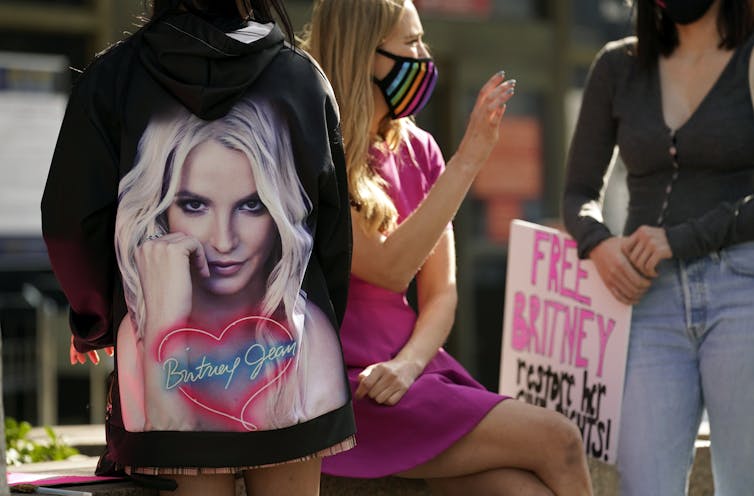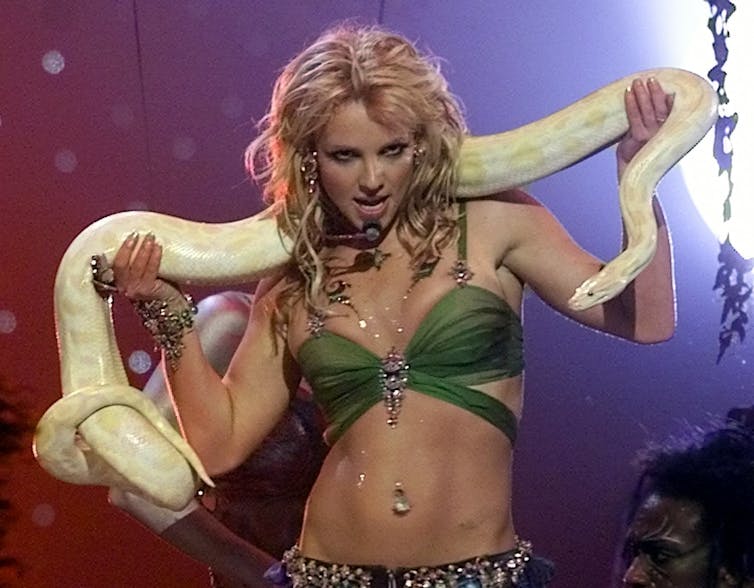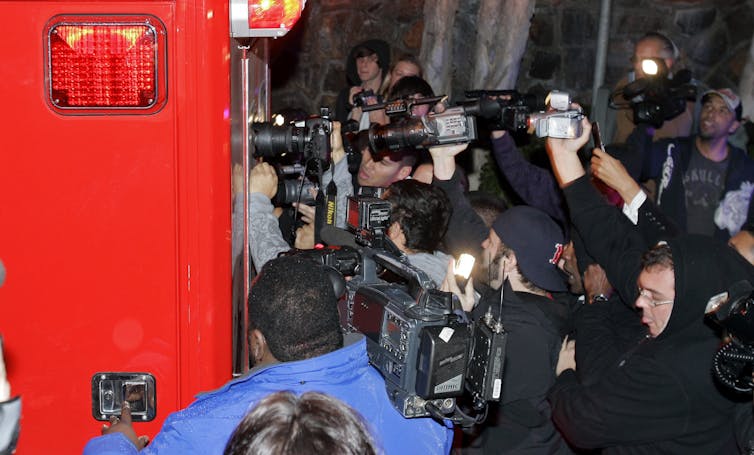Source: The Conversation (Au and NZ) – By P. David Marshall, Professor and Research Chair in New Media, Communication and Cultural Studies, Deakin University
An intriguing documentary about Britney Spears, produced by the New York Times and airing in Australia tonight, marks a change in how we view and engage with celebrities.
A new sense of connection and responsibility to famed individuals is emerging: where once we gawked at the public struggles of Britney, Paris Hilton and Lindsay Lohan, now there is a more concerned response. Audiences have become vocal supporters of the vulnerable, exploring cultural issues in new ways.
The documentary promises a “re-examination” of the singer’s portrayal, her infamous scandals and mental health. But it isn’t built on an investigation entirely by the filmmakers. It is driven by a large cohort of fans who are trying to support Britney’s efforts to regain control of her life and finances from her father-conservator — challenging how we remember her past in the process.
Gathering around hashtags like #FreeBritney, today’s audiences appear to be assuming the power to right past wrongs.
Read more: Podcast host, DJ … how the much lampooned Paris Hilton has rewritten the celebrity script
Who’s ‘affecting’ who?
Embedded in this rethink of what happened to Britney’s career is a movement that has coalesced around the hashtag #FreeBritney. In digital culture, hashtags have come to embody pathways for emotional connection across social media platforms. Their sharing is a way to align interests and feelings. The hashtags carry “affective power” in a similar way to the star power of celebrities — that is, they can guide choices.
Paralleling the #MeToo movement and #BLM activism, #FreeBritney is a further cultural coalition that has built activism along digital pathways, then expanded to real protest events.

The film Framing Britney (which I’ve yet to watch) exposes some negative elements of the media and entertainment industry including its sexist positioning of the singer. Certain prominent figures in Britney’s life, including some family members and famous ex-boyfriend Justin Timberlake, are flagged through the #FreeBritney movement as advancing non-acceptable behaviour. Timberlake has apologised to Spears and to singer Janet Jackson since the documentary’s US release.
The #FreeBritney movement also shows how the structure of stardom and celebrity is transforming. Questions are being asked of our popular culture: who makes the public identity of stars? What is public and what is private?
Actor Mara Wilson’s recent opinion piece describes how her public identity was shaped to an accepted narrative (based around child stars getting the comeuppance they deserved for seeking fame) by an interview she gave aged 12. “Our culture builds these girls up just to destroy them,” she writes. “Fortunately people are becoming aware of what we did to Ms Spears and starting to apologise to her. But we’re still living with the scars.”
These days the meaning and value of celebrity is being more shaped by collective actions of social media fan activists than by the legacy press and the entertainment industry.

Read more: And I will always love you: how marketers measure Dolly Parton’s magic
Sharing and caring
This reconstruction of public persona is partly because of social media. The personal has become normalised and curated by all of us on social media, including those in the public eye. So, there is a new awareness of both the value of revealing, but also the risks of exposing ourselves. Via social media, fans have developed two-way parasocial relationships with celebrities.

New norms are developing and new shared understanding of past media’s regular shaming are now better understood and reflected upon. See here the recent re-sharing on Twitter and TikTok of celebrity interviews, such as David Letterman poking Lindsay Lohan about her repeated visits to rehab, the character assassination of Megan Fox or Oprah Winfrey snarkily asking the Olsen twins about their dress sizes.
The celebrities are changing too. After decades of keeping their opinions private, those in the public eye are engaging more openly with issues (including hashtags) and their own personal emotional health and feelings.
Singer Taylor Swift described sharing her politics for the first time in the Netflix documentary Miss Americana (2020). Model and cookbook author Chrissie Tiegen shared heartbreaking posts about her family’s experience of stillbirth last year. Meanwhile, stars like Beyoncé are releasing TikTok-ready material and tapping into the collective brand power beyond traditional entertainment and media promotion.
The long-term effects of this affective power-shift, captured in the #FreeBritney movement and the Framing Britney documentary, are hard to predict.
The entertainment industry’s transformation may lead to new entities that know how to curate public identities for sharing more cleverly in this different world. Nonetheless, a new cultural politics is integrating how audiences shape public personas and how they care for the real person behind the headlines.
– ref. Framing Britney Spears shows star power is shifting to the audience – https://theconversation.com/framing-britney-spears-shows-star-power-is-shifting-to-the-audience-156129




